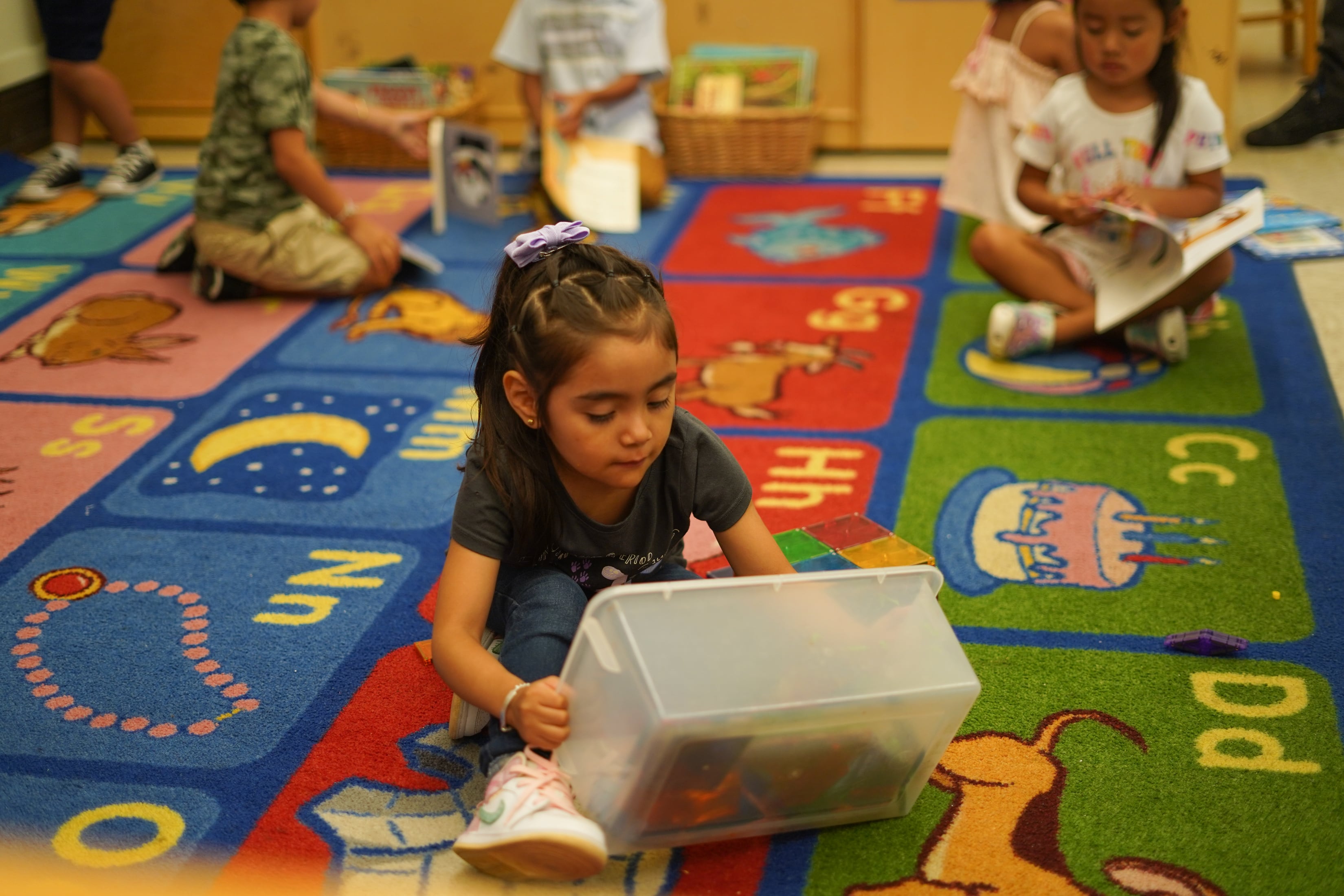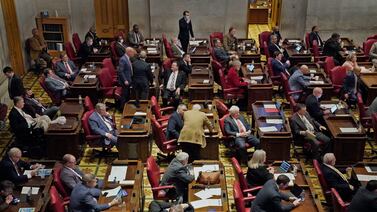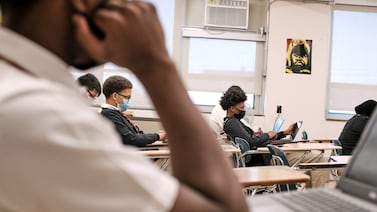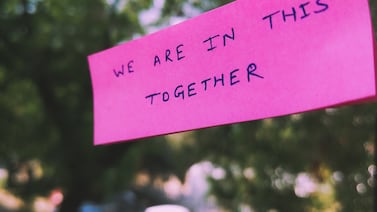Gov. J.B. Pritzker said Wednesday he hopes to make Illinois “number one” for child care access during his next term.
After winning a second term in November and heading into a spring legislative session that will determine the state’s early childhood education and child care budget, Pritzker said he intends to prioritize child care to support families throughout the state and provide more funding for child care centers and their workforce.
“There is so much more that we can do to make it easier for young families to access quality child care, and early childhood education,” Pritzker said at a press conference Wednesday at the Carole Robertson Center for Learning’s site in Little Village. “But already our improvements have made a profound change.”
According to Pritzker, prioritizing child care is fiscally responsible and will result in positive outcomes throughout a child’s lifetime.
“It yields a higher high school graduation rate, a higher college attendance rate, greater lifetime earnings, lower health care costs, lower crime rates, and an overall reduction in the need for human services spending throughout the lives of these young children,” Pritzker said on Wednesday.
Access to early childhood education and child care provides children with cognitive and emotional development, improved self-regulation, and improved academic achievement, according to reports cited on the Centers for Disease Control and Prevention website. Later in life children who have had access to early childhood education also show improved health outcomes and reductions in crime rates, welfare dependency, and child abuse and neglect, the CDC notes.
Illinois has a number of ways of funding child care and early education across multiple government agencies. One of the largest is through the Illinois State Board of Education’s early childhood block grant.
The state was unable to put additional money into that block grant in the 2020, 2021, or 2022 budgets, primarily due to the economic slowdown spurred by the coronavirus pandemic However, the state was able to increase that budget line by 10% for the state’s 2023 budget.
In addition to the state board of education’s block grant, the state funds early childhood education and child care programs throughout the state’s department of human services. The department of human services supports the state’s youngest learners through its Early Intervention Program, which supports children with disabilities from birth to 3 years old and the Child Care Assistance Program, which helps low-income working families with child care costs.
Early intervention had $7 million in funding restored in the 2023 budget after a cut last year. However, the Child Care Assistance Program, which helps low-income working families with child care costs, did not receive an increase.
During the pandemic, the governor’s administration made it easier for parents who lost their jobs to receive three months of child care while searching for work or in a skills training program. Over the summer, the state increased eligibility for the Child Care Assistance Program by lowering the income limit and expanding benefits, increasing the number of families. Also, child care centers received more funding to retain staff.
Grace Hou, secretary of the Illinois Department of Human Services, said Wednesday at the press conference that the state has invested over $1 billion in child care that has reached more than 12,000 child care providers across the state and over 50,000 child care workers.
Pritzker said the state’s investments have funded programs such as the Carole Robertson Center’s Grow Your Own Program Workforce Initiative, which trains community members to be educators. At the press conference, Bela Moté, CEO of the Carole Robertson Center, said the center has hired more than 30 people through the program over the last 15 months.
Pritzker is preparing his budget proposal for the 2023 fiscal year where he will make funding requests to the legislature for everything from education to public safety. Lawmakers will ultimately approve a budget in late May or June. However, the state’s budget is uncertain as the economy could be hit by a recession or another economic slowdown.
Samantha Smylie is the state education reporter for Chalkbeat Chicago, covering school districts across the state, legislation, special education, and the state board of education. Contact Samantha at ssmylie@chalkbeat.org.








